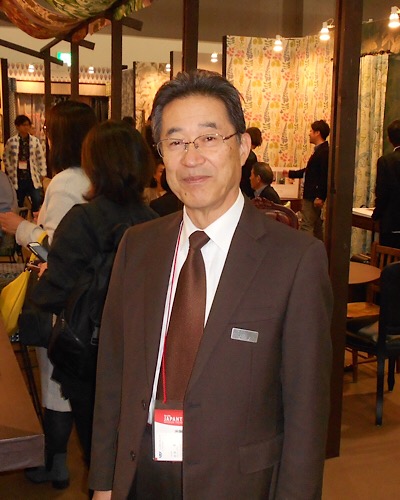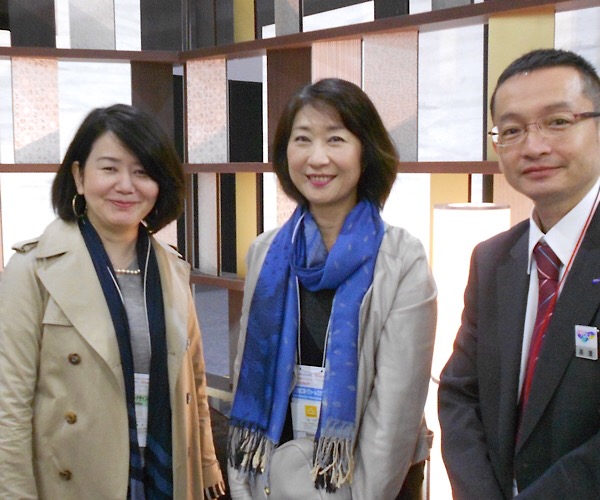Japanese Hospitality Market Almost Prepared for 2020 Summer Olympics
$8.5 Billion Spent for Worldwide Event
February 5, 2019
TOKYO -- The hospitality market, along with contract fabrics, got a hefty infusion here, after years of stagnation, due to refurbishment and new construction, such as the new 41-story Hotel Okura, in preparation for the 2020 Summer Olympics (July 24-August 9).
Over 60,000 hotel rooms have been added and an estimated $8.5 billion spent, according to the Mizuho Research Institute.
Japantex, an international trade show of 277 exhibitors of upholstery fabrics, curtains, drapery, home textiles, Venetian blinds, carpets, wallcoverings, and bedding, among others, held November 20-22, attracted some 27,000 visitors this year.
“The contract furnishings business has warmed up as demand from new hotels and refurbishing [is] in the final stages”, says Noboru Saito, managing director, Ionia Ltd, Tokyo.

Noboro Saito, managing director at Ionia Ltd. in Tokyo.
In the past 20 years, Ionia has distributed contract fabrics from such companies as Kravet, Panaz, Eijffinger, and Waverly, among others. This year, Ionia participated in Japantex under Japan Decoon, which is a collective exhibition of stalls of Japanese agents/distributors that mainly represent European and American collections. Decoon housed over 12 exhibitors and showed more than 20 European and American brands.
In the past decade, the Japanese hospitality market has been driven by designer and contract-specifier recommendations, thereby sustaining what has been a stagnant sector.
“This is our fourth participation and we are increasingly observing that both for hospitality and residences the customers demand more Nordic designs and trends,” says Jenny Moberg, designer of PatternsFrom Agency in Finland.
An upgraded textile from the Toray Industries Corporation attracted buyers.
"Ultrasuede, which has undergone many technological innovations, continues its evolution…. Today’s Ultrasuede (non-woven polyester, ultra-microfibers spun so light and fine that a strand measuring more than 900km (560 miles) long would weigh less than one gram) is used as car seats, jackets, and fashion products have unprecedented high performance and functionality," says Division Head Nobukazu Yagi of Toray.
At the 100-year-old Toli Corporation, officials agree the Japanese market is contracting and that exports have become more important than ever before.

Seiji Takazawa, export manager, Toli Corp. (r to l), Designers Miyuki Tokuma Ekuracie and Chimi Yogib of Decollage at JapanTex.
“We are the leading manufacturer and marketers of carpets in Japan and we have spread all over Asia, Middle East, and America…,” says Seiji Takazawa, export manager for Toli, which has five manufacturing plants in Japan, 1,800 employees, and a carpet division with global sales of about $1 billion USD in 2017.
The 35-year-old Nichhbel Trading Co. Ltd here is specializing in contract wood blinds and components manufacturing. It is also a leading exporter to U.S. markets.
“We offer pure 100 percent wood blinds to high-end markets," says Nichhbel Spokesperson Ryota Shimizu.
He adds the Japanese market remains steady, while the high-end U.S. markets continue to grow.











